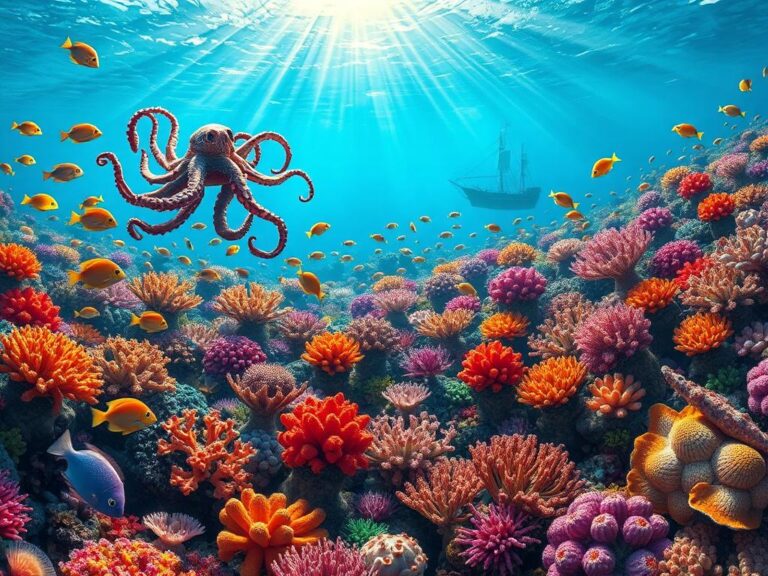Riddles for 2nd Graders: Fun Challenges to Boost Learning!
Riddles for 2nd Graders: Fun Challenges to Boost Learning!
Riddles for 2nd graders can spark curiosity and enhance critical thinking skills among young learners. These clever puzzles serve not only as a source of entertainment but also as powerful educational tools. Engaging with riddles cultivates problem-solving skills, encourages logical reasoning, and inspires a love for language. As children grapple with the ambiguous nature of riddles, they learn to think outside the box and explore creative solutions, which contributes to their educational growth. The following article presents an exciting collection of riddles that challenge 2nd graders while making learning a playful experience. Get ready to dive into the delightful world of riddles and discover just how much fun learning can be!
The Importance of Riddles in Learning
Riddles offer several advantages for young learners, particularly 2nd graders.
At this stage of their education, children are naturally curious and eager to explore the world around them. Riddles stimulate their imaginative thinking and provide an enjoyable way to exercise their cognitive skills. According to educational research, engaging in riddles can significantly improve children’s language skills, including vocabulary, comprehension, and articulation.
Here are a few key benefits of riddles for learning:
- Improved Critical Thinking: Riddles often require lateral thinking, helping children analyze problems from different perspectives and find hidden solutions.
- Enhanced Vocabulary: Solving riddles exposes young learners to new words and encourages them to expand their lexicon.
- Increased Confidence: Successfully solving riddles can boost a child’s confidence in their problem-solving abilities and inspire a genuine love for learning.
Types of Riddles for 2nd Graders
Just like any enjoyable activity, riddles come in various forms that cater to diverse learning styles.
For instance, some riddles employ wordplay, while others emphasize visual or logical reasoning. Here are some types of riddles that are perfect for 2nd graders:
- Classic Riddles: These are traditional riddles that challenge children’s understanding of language, often requiring them to think metaphorically.
- Number Riddles: These riddles involve mathematical elements, promoting numeracy and logical reasoning skills.
- Picture Riddles: Visual riddles engage children’s creativity as they decipher clues hidden within images.
100 Fun Riddles for 2nd Graders
Let’s delve into a collection of 100 fun riddles specifically curated for 2nd graders. These riddles will not only entertain but also challenge young minds to think critically and creatively.
- Riddle: What has keys but can’t open locks? Answer: A piano!
- Riddle: What has hands but can’t clap? Answer: A clock!
- Riddle: I’m tall when I’m young, and I’m short when I’m old. What am I? Answer: A candle!
- Riddle: What begins with T, ends with T, and has T in it? Answer: A teapot!
- Riddle: What has to be broken before you can use it? Answer: An egg!
- Riddle: I’m light as a feather, yet the strongest person can’t hold me for five minutes. What am I? Answer: Breath!
- Riddle: What is so fragile that saying its name breaks it? Answer: Silence!
- Riddle: Where does today come before yesterday? Answer: In a dictionary!
- Riddle: What can you catch but not throw? Answer: A cold!
- Riddle: What has an eye but cannot see? Answer: A needle!
- Riddle: What gets wetter as it dries? Answer: A towel!
- Riddle: What has words but never speaks? Answer: A book!
- Riddle: What runs around the yard without moving? Answer: A fence!
- Riddle: What has mountains but no trees and cities but no houses? Answer: A map!
- Riddle: What kind of room has no doors or windows? Answer: A mushroom!
- Riddle: What has one head, one foot, and four legs? Answer: A bed!
- Riddle: What can travel around the world while staying in a corner? Answer: A stamp!
- Riddle: I have branches, but no fruit, trunk, or leaves. What am I? Answer: A bank!
- Riddle: What has a face and two hands but no arms or legs? Answer: A clock!
- Riddle: What can you keep after giving to someone? Answer: Your word!
- Riddle: What runs but never walks, has a mouth but never talks? Answer: A river!
- Riddle: What comes down but never goes up? Answer: Rain!
- Riddle: What has four wheels and flies? Answer: A garbage truck!
- Riddle: What is cut on a table but never eaten? Answer: A deck of cards!
- Riddle: What has a neck but no head? Answer: A bottle!
- Riddle: I have feet but can’t walk. What am I? Answer: A ruler!
- Riddle: What has a thumb and four fingers but isn’t alive? Answer: A glove!
- Riddle: What is made of water but if you put it into water it will die? Answer: An ice cube!
- Riddle: What has holes but can still hold water? Answer: A sponge!
- Riddle: What kind of tree can you carry in your hand? Answer: A palm tree!
- Riddle: What begins with an “e” and only contains one letter? Answer: An envelope!
- Riddle: I have cities but no houses, forests but no trees, and rivers but no water. What am I? Answer: A map!
- Riddle: What goes up and down but never moves? Answer: A staircase!
- Riddle: What has an end but no beginning, a home but no family? Answer: A road!
- Riddle: I’m full of holes but I can hold water. What am I? Answer: A sponge!
- Riddle: What is always in front of you but can’t be seen? Answer: The future!
- Riddle: What begins with P and ends with E and has thousands of letters? Answer: The Post Office!
- Riddle: If you drop me, I’ll crack, but if you smile at me, I’ll smile back. What am I? Answer: A mirror!
- Riddle: What has legs but doesn’t walk? Answer: A table!
- Riddle: What is at the end of a rainbow? Answer: The letter W!
- Riddle: What is full of holes but still holds water? Answer: A sponge!
- Riddle: What has only two words, but thousands of letters? Answer: The post office!
- Riddle: Where can you find an ocean without water? Answer: On a map!
- Riddle: What has a head, a tail, but no body? Answer: A coin!
- Riddle: What has a thumb and four fingers but isn’t alive? Answer: A glove!
- Riddle: What can you break, even if you never pick it up or touch it? Answer: A promise!
- Riddle: What is as light as a feather but even the world’s strongest man couldn’t hold it for much longer than a minute? Answer: Breath!
- Riddle: I can fill a room, but I take up no space. What am I? Answer: Light!
- Riddle: What has many teeth but cannot bite? Answer: A comb!
- Riddle: What flies without wings? Answer: Time!
- Riddle: What has a head and a tail but no body? Answer: A coin!
- Riddle: What gets sharper the more you use it? Answer: Your brain!
- Riddle: What has a heart that doesn’t beat? Answer: An artichoke!
- Riddle: What is easy to get into but hard to get out of? Answer: Trouble!
- Riddle: What comes once in a minute, twice in a moment, but never in a thousand years? Answer: The letter M!
- Riddle: What can fill a room but takes up no space? Answer: Light!
- Riddle: If you drop me, I’ll crack. If you smile at me, I’ll smile back. What am I? Answer: A mirror!
- Riddle: I go in hard, come out soft, and am never the same. What am I? Answer: Chewing gum!
- Riddle: What is so fragile that saying its name breaks it? Answer: Silence!
- Riddle: What is always coming but never arrives? Answer: Tomorrow!
- Riddle: I can be long or short; I can be grown or bought; I can be painted or left bare; I can be round or square. What am I? Answer: Hair!
- Riddle: The more you take, the more you leave behind. What am I? Answer: Footsteps!
- Riddle: I have keys but open no locks. I have space but no room. You can enter but can’t go outside. What am I? Answer: A keyboard!
- Riddle: What can you hold without ever touching it? Answer: A conversation!
- Riddle: Where does a penguin go to dance? Answer: A snowball!
- Riddle: What has a lot of eyes, but can’t see? Answer: A potato!
- Riddle: What begins with T, ends with T, and has T in it? Answer: A teapot!
- Riddle: What type of cheese is made backward? Answer: Edam!
- Riddle: Which letter of the alphabet has the most water? Answer: C!
- Riddle: What can fill a bag but never gets heavy? Answer: Air!
- Riddle: I am taken from a mine and shut up in a wooden case, from which I am never released. What am I? Answer: Pencil lead!
- Riddle: What kind of band never plays music? Answer: A rubber band!
- Riddle: What is a cat’s favorite color? Answer: Purrrrrrrple!
- Riddle: What has a neck but no head? Answer: A bottle!
- Riddle: What has wheels and flies, but is not an aircraft? Answer: A garbage truck!
- Riddle: I can be cracked, made, told, and played. What am I? Answer: A joke!
- Riddle: Which month has 28 days? Answer: All of them!
- Riddle: What is always in front of you but can’t be seen? Answer: The future!
- Riddle: I can be long or short; I can be grown or bought; I can be painted or left bare; I can be round or square. What am I? Answer: Hair!
- Riddle: What is black when it’s clean and white when it’s dirty? Answer: A chalkboard!
- Riddle: What kind of room has no doors or windows? Answer: A mushroom!
- Riddle: What can you never eat for breakfast? Answer: Lunch!
- Riddle: What is always running but never moves? Answer: A refrigerator!
- Riddle: What is at the end of a rainbow? Answer: The letter W!
- Riddle: I am tall when I’m young, and I’m short when I’m old. What am I? Answer: A candle!
- Riddle: What has words but never speaks? Answer: A book!
- Riddle: What building has the most stories? Answer: A library!
- Riddle: What starts with a P, ends with an E, and has thousands of letters? Answer: The post office!
- Riddle: What has a bottom at the top? Answer: Your legs!
- Riddle: What goes up but never comes down? Answer: Your age!
- Riddle: What begins with an “e” and only contains one letter? Answer: An envelope!
- Riddle: What has bark but no bite? Answer: A tree!
- Riddle: What has a bed but never sleeps? Answer: A river!
- Riddle: What gets bigger the more you take away? Answer: A hole!
- Riddle: What gets broken without being held? Answer: A promise!
- Riddle: What has a single eye but cannot see? Answer: A needle!
- Riddle: What has to be broken before you can use it? Answer: An egg!
- Riddle: What can you catch but not throw? Answer: A cold!
- Riddle: What is very easy to get into but very hard to get out of? Answer: Trouble!
- Riddle: What can you keep but never give away? Answer: Your word!
Celebrating Riddles: A Shared Experience
Riddles create a wonderful opportunity for shared fun among peers, family members, and teachers.
Hosting a riddle contest or riddle-solving sessions can further enrich the communal learning experience. Children can work together in small groups to solve riddles, share their interpretations, and explain their thought processes to one another. This collaborative approach not only reinforces the learning objectives of improving vocabulary and critical thinking but also builds essential social skills such as communication, teamwork, and empathy.
Riddles in Educational Setting
Integrating riddles into the classroom can stimulate engagement and make learning more dynamic.
Teachers can employ riddles as warm-up activities, brain teasers during breaks, or even assessments of comprehension. For instance, using riddles related to the subjects being taught can deepen learning by helping students make connections between different concepts.
Conclusion
Riddles for 2nd graders serve as valuable tools to enhance critical thinking, stimulate curiosity, and foster an eagerness to learn. The diverse types of riddles, coupled with the fun they offer, create an engaging and enriching environment for young learners. These 100 fun riddles provide an excellent resource to help children practice and develop their problem-solving skills while enjoying memorable moments with family and friends. Encouraging laughter and play through riddles ultimately cultivates a lifelong love for learning, making education a delightful adventure for 2nd graders and beyond.
FAQs
Why are riddles beneficial for 2nd graders?
Riddles enhance critical thinking and problem-solving skills, improve vocabulary, and boost children’s confidence in their abilities.
What types of riddles are suitable for 2nd graders?
Classic riddles, number riddles, and picture riddles are suitable as they cater to different learning styles and encourage creativity.
Can riddles be used in the classroom?
Yes, riddles can be integrated into the classroom as warm-up activities, brain teasers, or assessments to stimulate engagement and learning.
How can parents incorporate riddles into family time?
Parents can host riddle-solving contests, work together in small groups to create riddles, or simply share and enjoy them during family gatherings.
Feel free to share your thoughts, experiences, or questions about riddles in the comments section!







